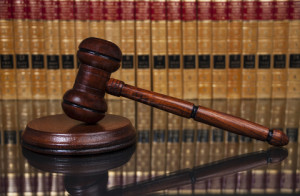England’s Supreme Court has handed a victory for free speech to a Northern Ireland bakery that refused to bake a cake with a political slogan. In Lee (Respondent) v Ashers Baking Company Ltd and others (Appellants) (Northern Ireland) [2018] UKSC 49, the court held that refusing to bake a cake with a slogan saying, “support gay marriage” was not discrimination. It further held that requiring them to do so would breach their fundamental Human Rights.
The case is important because the Supreme Court of the United Kingdom is considered to be far more left wing than the Supreme Court of the United States, but it accepted the arguments against compelled political speech the US Supreme Court avoided and indeed went way, way further. The unanimous (not split) court judgement, delivered by Lady Hale, is here.
The lawsuit, curiously similar to the near identical case in Colorado arose when a homosexual man, Mr Lee used Ashers Bakery’s ‘build-a-cake’ service to build a cake with the objectionable slogan. When they refused he brought a claim, which he won at first instance – obtaining £500 in damages. The couple bravely appealed, an appeal which they lost until they reached the Supreme Court.
The Supreme Court unanimously ruled that the Bakery’s rights under Articles 9 and Article 10 of the European Court of Human Rights would be violated by compelling them to bake the cake.
The ruling is incredibly important. American members of the far left frequently rely on foreign judgements. In this one, the whole SJW strategic litigation mob got humiliatingly wrecked. The judges did not simply rule that it was not discrimination they ruled that two of the Bakery owners’ basic human rights would be breached.
As a further sting, in the United Kingdom the losing party usually automatically has to pay the winner’s court fees. In this case that is likely to be over £500,000. This is a heavy but well deserved price for activist overreach.
More generally, the case exemplifies society’s growing rejection of the far-left’s unspoken doctrine of ‘Equality for me but not for thee’, in which the rights of the groups they find it fashionable or advantageous to support trump the rights and dignities of everyone else.
As a general rule, I am dubious about different jurisdictions relying on each other’s judgements and so are US Conservative legal scholars. However, if this British case should get a mention in future Supreme Court arguments by Conservatives, well – no one can really blame them.


